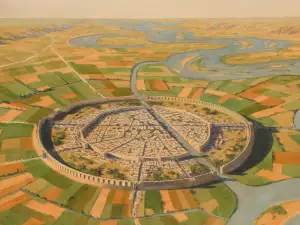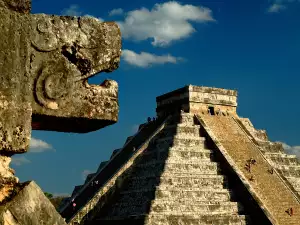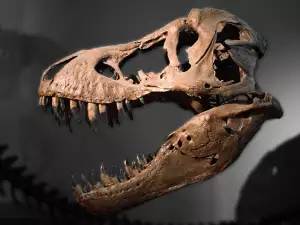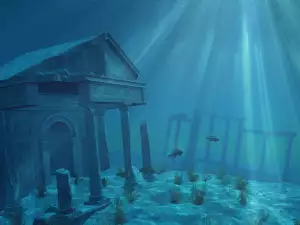Some say Atlantis is the last unsolved mystery left on Earth. The legend of the great civilization that was swallowed by the fury of the Atlantic Ocean stirs interest in scientists and mystics to this day.
First mentioned by Plato, thousands of authors have written about the sunken continent in the centuries to follow, each believing their theory about its location to be the correct one. There's no shortage of expeditions that have roamed the islands of the Atlantic for months and years in their attempts to reach Atlantis, with also no lack of claims by explorers that they've found the coveted prize.
Without clear and categorical evidence however, those who dared claim they had found the lost continent were quickly dismissed by the scientific community. For this very reason there's few people today bold enough to claim that they're on the tracks of Atlantis, let alone to have found signs of it.
Flying in the face of the scientific community however, recently a group of scientists from University College Cork came out claiming that they had found Atlantis - at least a part of it, a rocky islet barely rising from the ocean, near the western coast of Ireland.
Professor of ancient history Matt Sibsun claims that the small granite island Rockall in the North Atlantic is the highest point of sunken Atlantis. It is located some 186 mi (300 km) west of Scotland, 260 mi (420 km) northwest of Ireland and 435 mi (700 km) south of Iceland. Rockall belongs to Great Britain as part of Scotland, although it's much closer to Ireland.
The island was much larger in the past. As proof of this they've used naval maps from the 16th and 17th centuries. Due to climate changes in the middle of the 17th century, only the tip of the island remained visible above sea level. According to Sibsun, this was the 2nd sinking of Atlantis. There were no people living there at the time but he believes it's possible to still see the ruins of the mythological civilization.

He bases his claims from the stories of sailors who sailed those waters back in the 15th century. They told of strange and remarkable ruins. Fearsome creatures were also mentioned but the historian attributes these to the fear of the unknown that was prevalent in the Atlantic in the late Medieval seafarers.
According to Sibsun, the Atlantean civilization fell 13 thousand years ago, at the end of the last ice age. The Atlanteans themselves were seafarers, with legends about them reaching even the farthest corners of the Mediterranean. Their doom came with the melting of the ice. A melting ice sheet wiped out a great part of the population of the northern parts of Europe, giving way to civilization development in the East.
According to the professor, the receding ice around the 13th century and temporary decline of the world's ocean uncovered part of Atlantis but as mentioned earlier it was swallowed up by the ocean in the mid 17th century. Sibsun believes that more thorough deep sea explorations of Rockall Island will finally reveal the long-held secrets of Atlantis.









